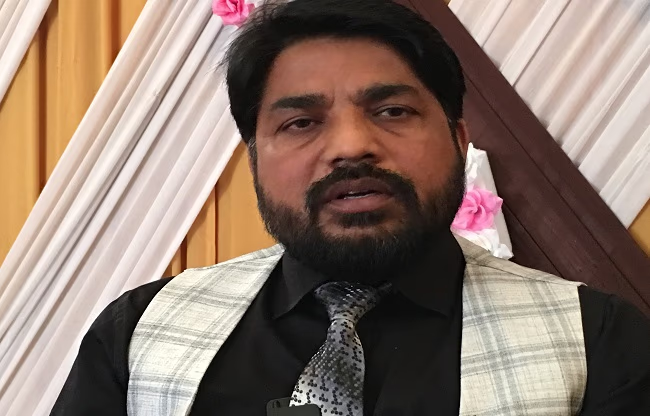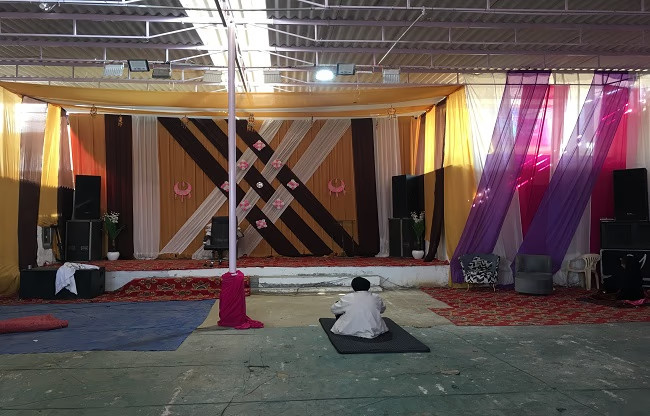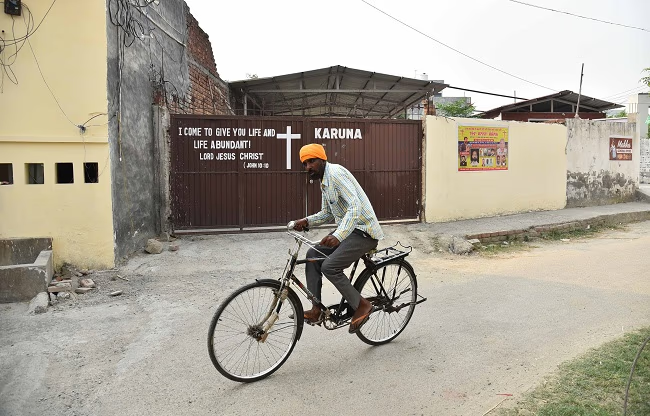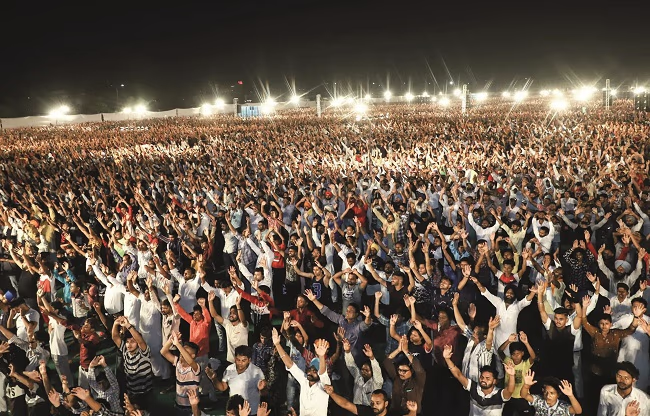Punjab is renowned for its Sikh population and fertile land. The land has already become toxic, and now the Sikh population is reportedly at risk. In the 2011 census, about one and a half percent of Punjab's population identified as Christian. It's now claimed that this figure has surpassed 15%. But how does this impact the Sikhs? Interestingly, many Sikhs are gravitating toward churches and ministries. Disputes have even emerged between born Christians and those who have converted. Generations of Christians accuse new converts of tarnishing their faith's reputation.
In the first episode, it was noted how Christianity is spreading through Punjab's veins. Even the reporter from aajtak.in was invited to find refuge in Jesus.
In this segment, discover how Punjab's demographics are invisibly transforming. Residents of this Sikh-majority state are rapidly gravitating toward a different faith. What's the modus operandi of this conversion net, and where does the substantial funding originate?
As we explore these queries, we travel to Tarn Taran, Jallupur Khera in Amritsar, and Jalandhar, speaking with pastors, believers in Christ, and local leaders.
My father was possessed by an evil spirit. Despite medical tests showing nothing, we continued seeking treatment and spiritual remedies until he passed away in 1989. That same demon caught me too, causing breathing issues, similar to what my father experienced. We tried everything, from shamans to holy men, but to no avail.
It was in 2005 when someone shared the Good News, suggesting I pray to Jesus in the church. As a staunch Sikh, I used to think of Christ as the Englishmen's guru, but my dire state made me consider this new path. We visited a local church near the border, and as the pastor read the scriptures, I began to feel lighter, as if a heavy burden was lifted from me. I continued this prayer at home, and the malevolent spirit eventually left me. That was two decades ago, and I remain in good health.
Pastor Sarabjit Singh, holding the Holy Bible, narrates his story at Goindwal Sahib in Tarn Taran—a region historically known as the spiritual belt of Punjab, deeply entrenched in Sikhism. Despite numerous gurdwaras, there might be an equal or greater number of churches here.
Home churches, often indistinguishable from regular homes, might not display significant Christian symbols. Step inside, and you won’t see any statues of Jesus, typical wooden benches, or flickering candles. Instead, you'll find a carpet where Kartar Singh and Kulmeet Kaur offer prayers, turbaned, inside this Pentecostal church. Sarabjit Singh is one among many pastors present.
They emphasize faith healing, believing Jesus will grant what one desires. Sarabjit narrates an account of a cancer patient, originally a Christian, who came to their church. After attending services for a week, medical tests showed her cancer had vanished.
Sarabjit has a treasure trove of stories involving ordinary people burdened with ailments, himself as a bridge to Christ, and Jesus, the hero of these tales. Despite being in Western attire, without a beard or turban, questions about conversion elicit evasive answers. “Nowhere in the Bible does it call for a change of faith to rid oneself of evil spirits,” he claims, suggesting he still identifies as Sikh.
Though his faith hasn't changed, his path has. He says the Lord has chosen him, and now he strictly adheres to the Bible's teachings.
Sarabjit’s family and children also follow this path. As he converses, Jaswant Singh sits nearby, continually chanting prayers using similar terms.

Source: aajtak
Jaswant proudly declares: I'm 72 but can still accomplish much. The girls in our family who embraced Christ have completed their education and are married. Meanwhile, a son lost outside the faith perished, succumbing to evil. “It’s been 25 years since I realized all others are mere stones; Jesus is the true God,” says a somber Jaswant, sporting thick black sunglasses. “Since then, I’ve been spreading the Good News.”
Wherever you are, whether inside or outside the church, nearly everyone you encounter will share this phrase—the Good News.

Source: aajtak
Literally referring to Christ's teachings, it broadly encompasses the outreach strategy. We've even likened it to a marketing scheme in previous episodes. Sikh scholar and researcher Dr. Ranbir Singh echoes this term during a phone interview.
He says foreign funding trickles down to major pastors who then delegate to affiliated pastors to adopt and influence as many villages as possible into their faith. This is rampant in Punjab's border regions—Amritsar, Tarn Taran, Pathankot, Ferozepur, and Gurdaspur.
Targeting marginalized sections, they wield promises of school fees, jobs, clothes, and opportunities for foreign education—offering visas with surprising ease while portraying it as a struggle for others. One person receives something, passes it to another family, and this chain reaction envelops entire villages without overt religious displays. Outwardly they appear Sikh, but internally they've transformed. Alone in Gurdaspur, 600-700 houses are now churches.
Dr. Singh's claim is astonishing, noting that as of 2023, over 350,000 have converted to Christianity within two years. In Tarn Taran alone, the Christian community's numbers surged by 102% over ten years in what was once a spiritual belt.
While there's no official endorsement for this grassroots research, a discernible pattern is evident, usually within mere hours of interaction.

Source: aajtak
In recent years, numerous churches and ministries have emerged in Punjab. Run by former non-Christians who've converted millions—at least unofficially. Figures like Ankur Narula, born in a Khatri family, and Baba Ankur Narula Ministries of Jalandhar, started small but now surpass millions, drawing millions of subscribers to their YouTube channels. Other significant pastors, like Bajinder Singh Ministries in Chandigarh, attract millions of followers on YouTube. Notably, all target different districts within Punjab, with a shared connection to Pentecostal churches.
This Protestant branch, seen as louder than the rest, emphasizes the Holy Spirit and its miracles.
Pastors often perform prayers in languages incomprehensible to many, known as glossolalia—believed to allow direct communication with God. Thus, while healing, pastors can utter incantations that aren't necessarily an actual language.
The missions are shrouded in secrecy, akin to subliminal advertising, with manifestations meant to intrigue Punjab's fiery populace.
Grievances exist, too, among Amritsar, Tarn Taran, and Jalandhar's Sikhs, although their anger only equals water mixed in milk.

Source: aajtak
Retired military personnel Balwinder Singh from Goindwal Sahib lament: ...




